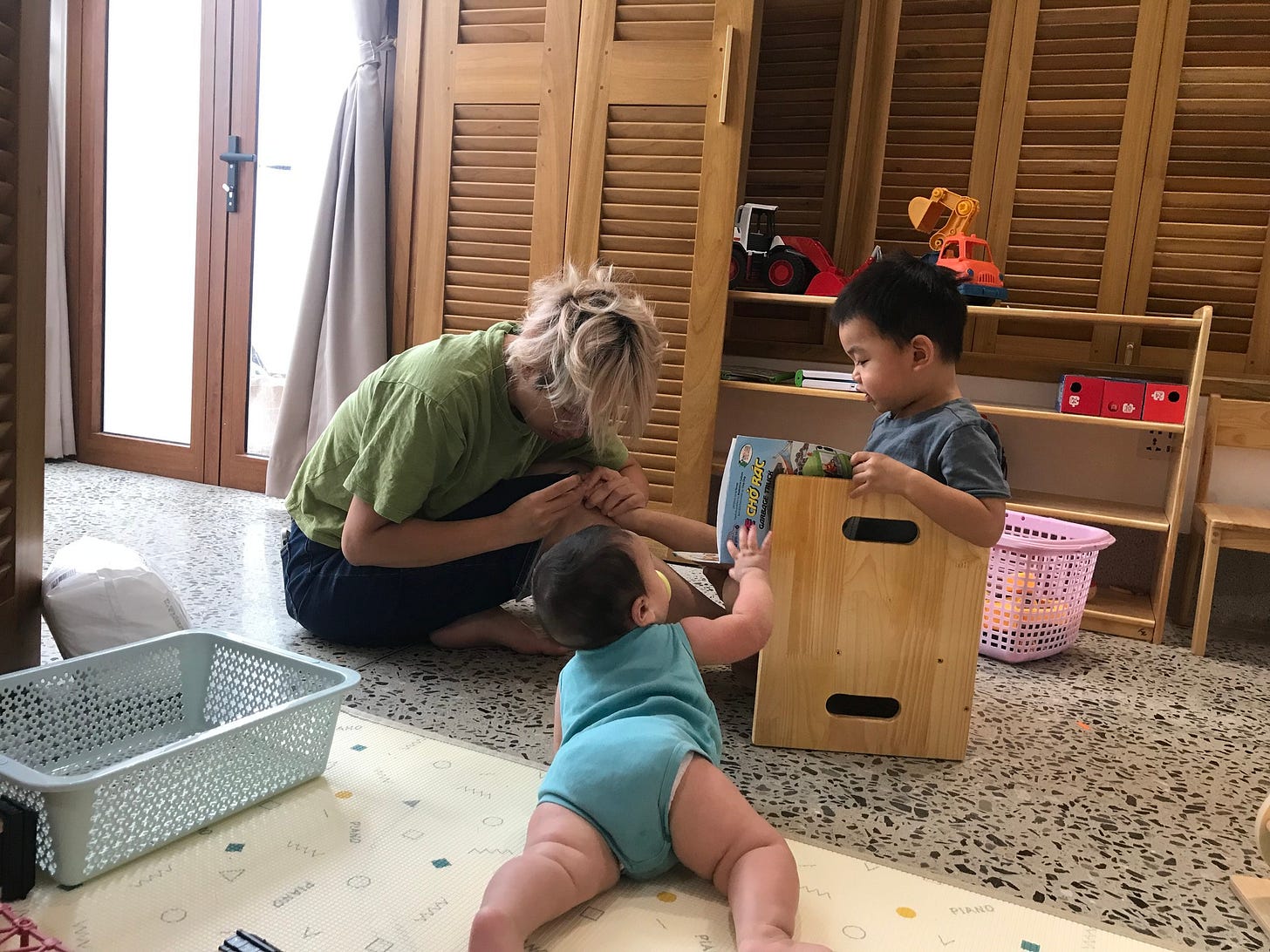Not so long ago, in the chaotic yet joyful world of parenting, my wife and I welcomed our second child. After the birth of our firstborn, we had been a strong team, supporting each other through the sleepless nights and baby giggles. My wife had received excellent post-partum care, and her doctor had always prioritized her mental well-being. However, everything changed after our second child was born, and we moved back to our home country where mental healthcare wasn't as readily available. Little did we know that our lives were about to be tested by a storm we couldn't see coming.
Post-partum depression silently crept into our lives, leaving my wife struggling in its grip. Unfortunately, without the proper support system in place, we felt lost and helpless. My own stress and unawareness only added to the burden she carried. Looking back, I still feel guilty for not recognizing her pain and not knowing how to help her through those difficult days. My wife told me the one memory that stuck with her was my losing patience and asking her “What’s wrong with you?” instead of “What can I do to help?”.
I knew we needed a better solution, something that could help people like us in difficult times. I have been thinking from the angle of how AI can help with mental well-being. I don’t believe AI alone could replace the essential human touch and trust in therapy. But because part of the underlying problem got to do with accessibility and difficulty to scale up human resources, this is usually where technology and AI can be useful.
There are three promising directions where AI could lend a hand:
Personal sensing: AI could analyze data from personal devices like phones and wearables to detect changes in behavior that might signal mental health issues. For example, an AI can look out for unusual breaks in the pattern of physical exercises, such as data collected via a user's phone and smartwatch, as possible signs of depression [1]. Even more subtle cues like typing patterns [2] or durations of intervals between phone calls or messages [3] can also detect warning signs of mental issues.
Natural language processing: by examining a person's language in text or voice, AI could gain insights into their mental state. For instance, the AI system can parse voice interviews during medical exams, together with text snippets posted by the user on social media, to identify keywords and phrases that might indicate mental health troubles.
Virtual agent: a chatbot can hold a conversation with a person, prompt questions, and respond accordingly to determine their mental condition [4]. Some chatbots can also offer advice and alert health practitioners to follow up [5].
The three approaches lie on the spectrum of discreetness and perhaps accessibility. Personal sensing required minimal effort from users, while natural language processing allowed for more explicit expression. Virtual agents could dig deeper but demanded more time and commitment. The answer, I think, lay in having a variety of AI-based solutions available to cater to different needs and preferences.
As I imagined a future where AI could be a supportive presence for my wife and me, I longed for a therapist accessible anytime, anywhere. While having a dedicated 24/7 therapist might be a stretch, I believed that technology could create more opportunities for doctors to be available when needed.
I’m thinking such solutions would not just be for us but also countless others facing mental health challenges. With mental health issues on the rise globally, we needed new approaches to reverse this troubling trend [6-8]. Nowadays my wife and I always warn expecting couples to be prepared and watch for signs of post-partum depression. But we also know how creeping such conditions can arise. We all need help.
In the end, my wife and I were lucky enough to ride through the rough patches and let time heal. But the struggles have definitely left scars on us and our relationship. There must be a better way than just "hoping" and "waiting it out". Although I haven't found the perfect solution yet, I am hopeful that through AI and technology, we can pave the way for a brighter future in mental healthcare. A future where couples like us can find timely and effective support, a future where help for mental well-being is just a click away.
[3] Touchscreen typing pattern analysis for remote detection of the depressive tendency
[4] Chatbots and conversational agents in mental health: a review of the psychiatric landscape
[5] Artificial intelligence for chatbots in mental health: opportunities and challenges
[6] Mental Stigma in Asia https://www.cigna.com.sg/health-content-hub/thought-leadership/mental-health-stigma-in-Asia
[7] Commentary: Mental healthcare should be for all, not just...







Hi Gia, thanks for a nice article. Could you share more about the proper support system your wife had with the first child?